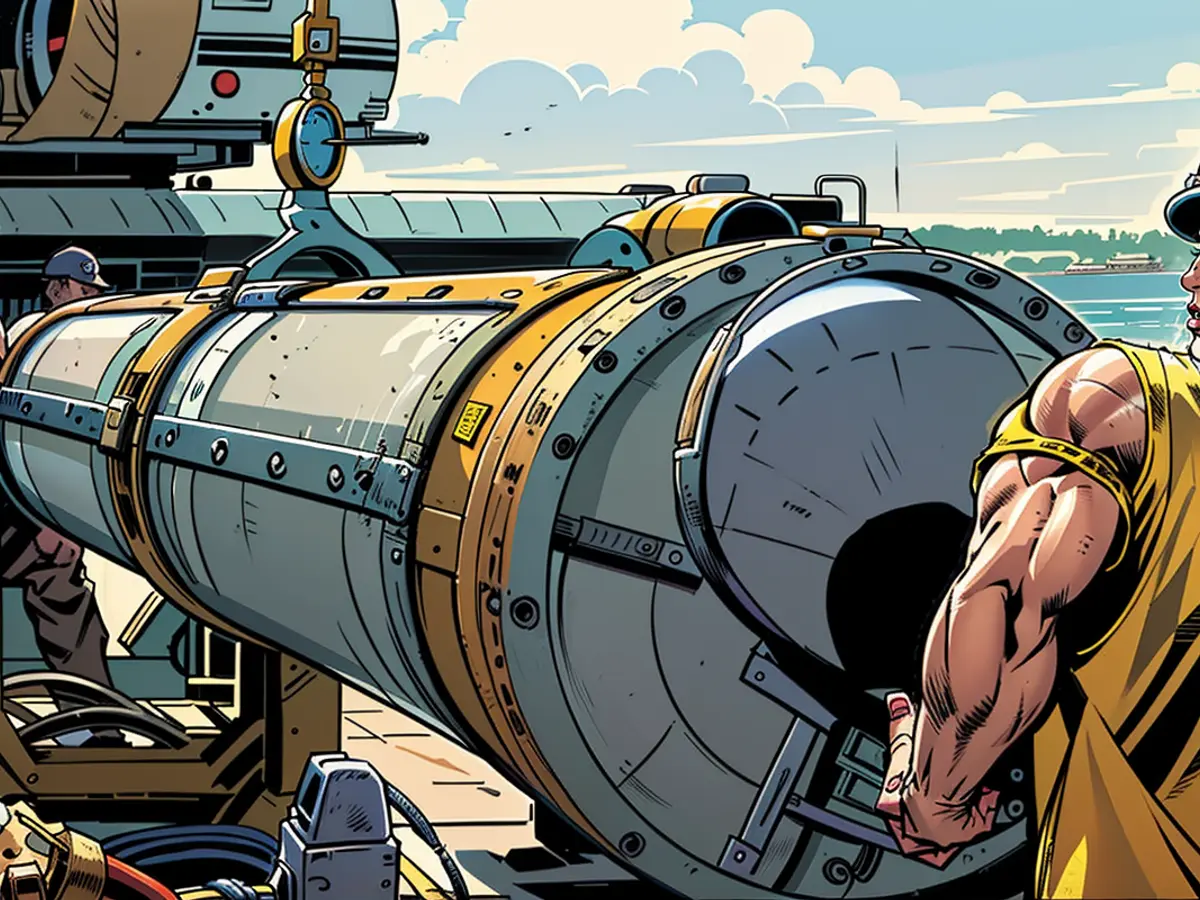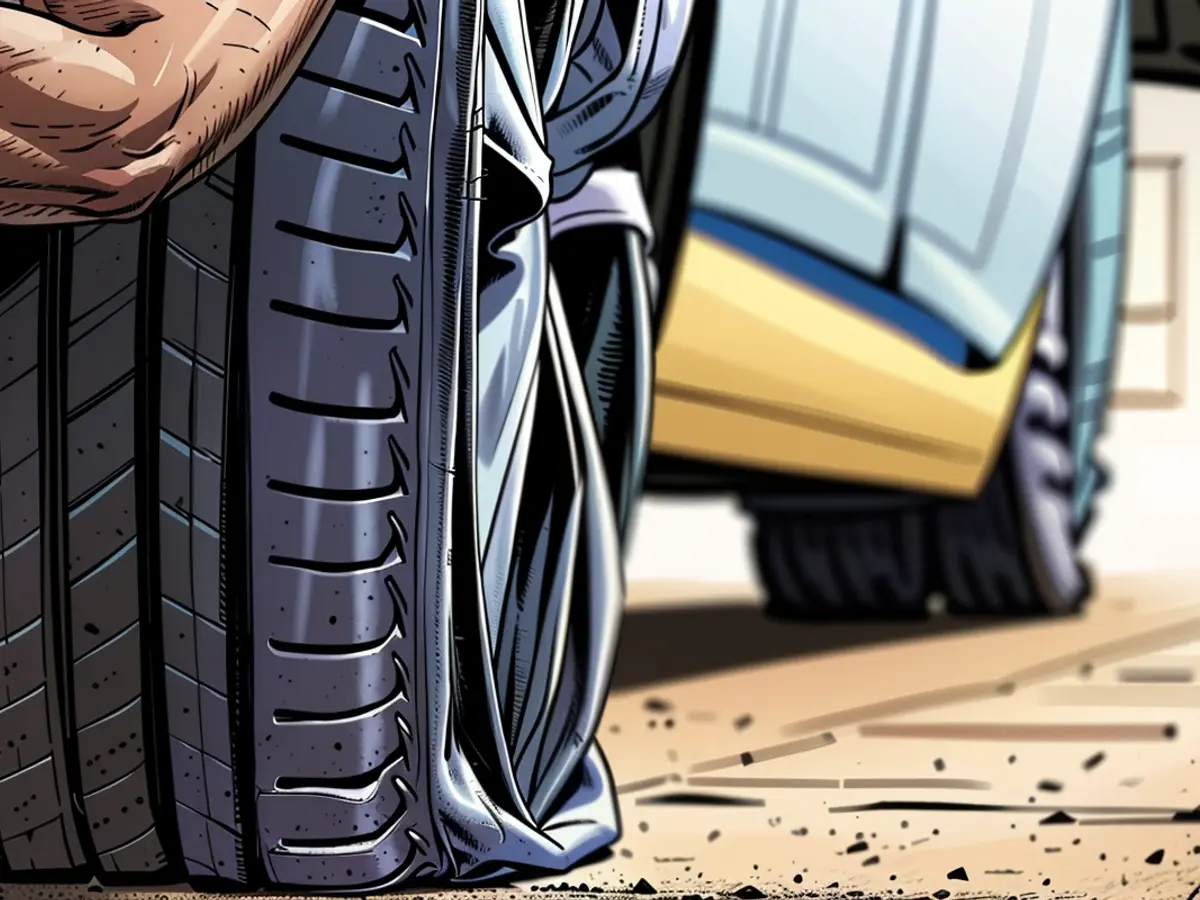Kretschmer sharply criticizes the Federal Government's actions
Criticism of the deployment of new US missiles in Germany continues unabated. Saxony's Minister-President Kretschmer is in favor of showing strength towards Moscow, but he criticizes the lack of communication from the federal government. One must speak with the population about this.
Saxony's Minister-President Michael Kretschmer has sharply criticized the federal government's approach in the debate over the deployment of US weapons in Germany. "But it's also clear that if you're taking a stand to be secure, you have to talk to the population about it. This policy of 'we'll just do it' isn't acceptable," the CDU politician said in an interview with RTL/ntv.
Kretschmer called for more clarification and a broad discussion on the topic: "The very least you have to do when it comes to weapons is to inform the population, to talk about it, and to have a broad discourse." He supports the idea of a missile defense shield for Europe, he said, but added: "But just doing it without talking about it, on the contrary, using words like 'warlike', that just creates questions, criticism, uncertainty, and probably also false ideas."
In general, Kretschmer is in favor of showing more strength towards Moscow: "I believe it's right for Germany to take a stand to be secure. The only consequence and the only language that Russia understands is our own strength." Germany needs to invest in security, he said, but that's difficult in the current situation, as Germany is in a recession.
Criticism of Chancellor Scholz
Germany and the USA announced three weeks ago at the NATO summit in Washington the deployment of US missiles in Germany from 2026. This includes Tomahawk cruise missiles, SM-6 missiles, and new hypersonic weapons that can reach Russia. The reason given was the threat from Russia, which invaded Ukraine in February 2022. The weapons are intended for deterrence.
Since then, there has been much criticism of the decision, from the opposition but also from the governing parties SPD, Greens, and FDP. Above all, the announcement without prior debate was criticized. Federal Defense Minister Boris Pistorius of the SPD has repeatedly defended the plans since then. According to him, the deployment is about conventional weapons that are not intended to have nuclear warheads. Moreover, he pointed out that Russia has had weapons of this and other ranges for some time.
Green party leader Ricarda Lang said she thinks it's sensible to have a more societal and politically robust debate about this. She also criticized Federal Chancellor Olaf Scholz. "It would have been good if Olaf Scholz as Federal Chancellor had used the chance to communicate this decision transparently to the population and to explain the reasons for it," she said in the early start of ntv. Many people are worried about whether we will continue to live in a peaceful Europe in the future given the current world situation.
"We as the Greens are a peace party and we will always remain so. But for us, peace doesn't mean that an aggressor can just get away with it, attacking the peace order and getting away with it," said Lang. One must stand up to those who publicly question this, in order to gain votes.
Completely against the deployment of new US missiles, SPD MP Ralf Stegner spoke out. "We must not make the world more dangerous, not enter into a new arms race," he said on WDR 5's "Morning Echo". "We must strive to engage in negotiations with Russia. It's difficult, I know, but escalation is the worst option we can choose." SPD faction leader Rolf Mützenich also warned of the risk of military escalation.
According to a Forsa poll for RTL/ntv, a majority of the population opposes the deployment of new US intermediate-range missiles in Germany. 49 percent rejected the plans, while 45 percent supported them. In Eastern Germany, 74 percent of respondents were against it, with only 23 percent in favor. In Western Germany, however, 49 percent were for it, while 45 percent were against it.
The SPD faction leader Rolf Mützenich joined in the criticism of the deployment, expressing concerns about the risk of military escalation. Within The Commission, there's a need for increased dialogue and transparency, as Green party leader Ricarda Lang advocated for a more robust societal and political debate on the decision.








